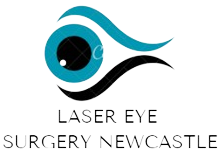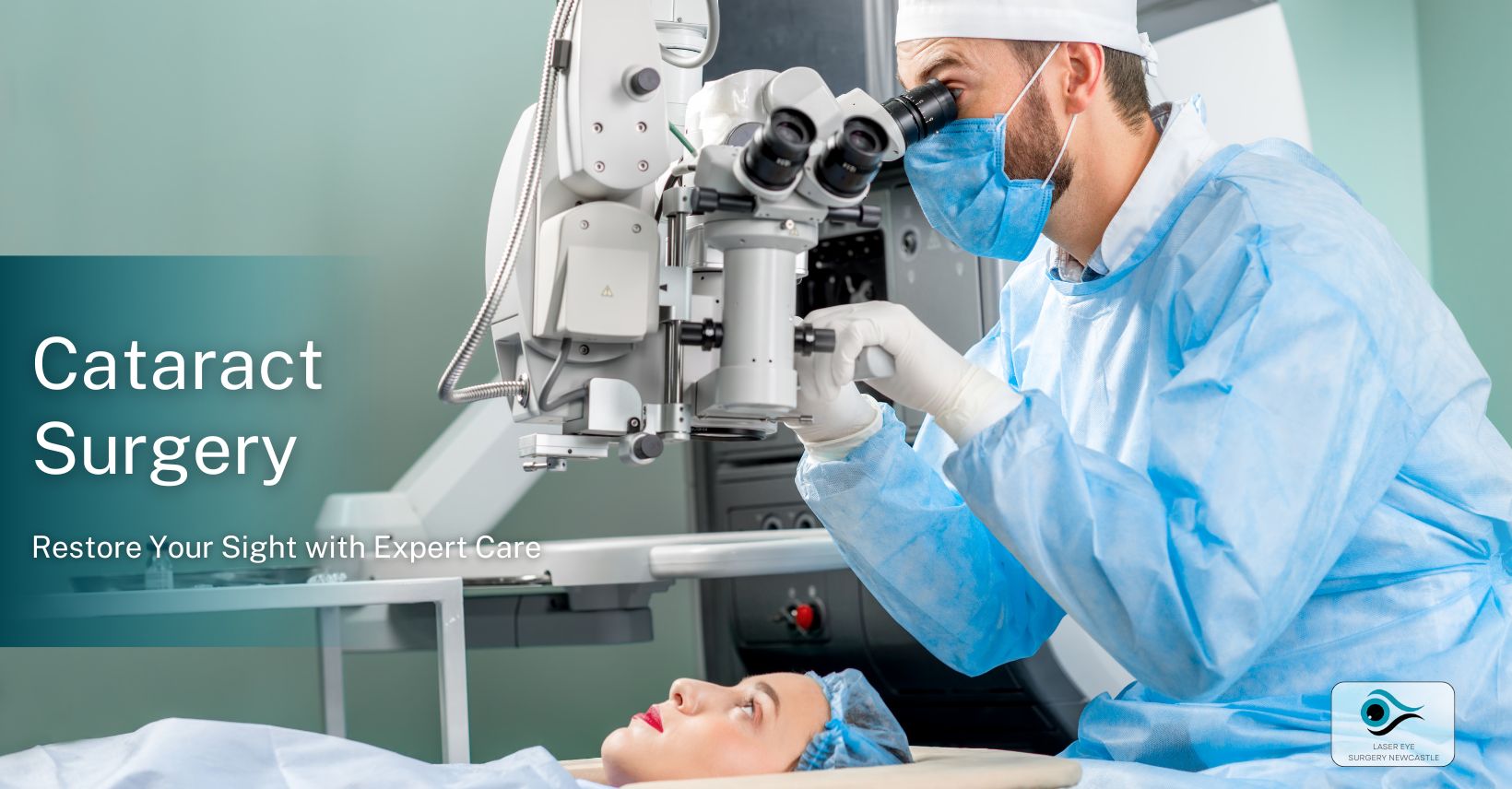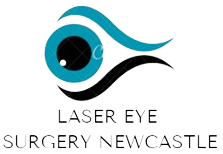Are you or a loved one considering cataract surgery? Understanding the risks, recovery process, and potential results is essential to making an informed decision.
In this comprehensive article, we will explore the key aspects of cataract surgery, from what cataracts are and how they affect vision to the different types of surgery available.
We will also discuss the risks and complications, recovery process, and success rates of this common procedure.
Stay tuned to learn everything you need to know before undergoing cataract surgery.
What Is a Cataract?

A cataract is a condition where the eye’s lens becomes cloudy due to the clumping of proteins, leading to a gradual decline in vision.
Cataract formation is primarily a result of ageing, with additional contributions from factors like diabetes, smoking, and UV light exposure. Over time, the lens proteins degrade and aggregate, scattering light and blurring vision, dulling colours, and impairing night vision. Understanding these contributing factors in greater detail will be important as we explore what causes cataracts in the following section.
What Causes Cataracts?
Cataracts primarily develop as a natural part of ageing when proteins in the lens degrade and aggregate. However, they may also arise from underlying medical conditions, certain medications, or eye injuries. This multifactorial aetiology underscores the importance of understanding the diverse risk factors for developing cataracts, which we will explore in the following section.
What Are the Risk Factors for Developing Cataracts?
Risk factors for developing cataracts include ageing, a family history of cataracts, and certain chronic medical conditions such as diabetes.
Besides these common risk factors, other factors can contribute to the development of cataracts. Prolonged use of corticosteroids, whether oral or in the form of eye drops, has been linked to an increased risk of cataracts. Similarly, excessive exposure to sunlight, especially without proper eye protection, can accelerate the formation of cataracts. Smoking is also a known risk factor for cataracts, as the toxins in cigarette smoke can damage the lens of the eye over time. Heavy alcohol consumption has been associated with an elevated risk of developing cataracts.
How Can Cataracts Be Prevented?

Preventing cataracts involves maintaining good eye health through a balanced diet of antioxidants, wearing sunglasses to protect against UV light, and avoiding smoking.
In addition to these preventive measures, regular eye exams are important to catch potential issues early on. You can promptly monitor your eye health and address any concerns by scheduling routine check-ups with an eye care professional.
Adopting a diet rich in fruits and vegetables can enhance eye health by supplying essential vitamins and minerals. Effectively managing chronic conditions like diabetes and high blood pressure is also important for minimising the risk of cataract development. These preventive measures are vital as we explore the risk symptoms of cataracts in the following section.
What Are the Symptoms of Cataracts?
Symptoms of cataracts include:
- Blurred vision
- Seeing haloes around lights
- Experiencing double vision
- Having difficulties with colours and light sensitivity
Do Cataracts Affect Both Eyes?
Cataracts can affect both eyes but often develop at different rates, leading to uneven vision loss between the eyes.
This discrepancy in progression could challenge the individual’s depth perception and overall visual acuity.
If one eye has a more advanced cataract, the brain might start favouring the eye with better vision, causing a lack of binocular vision.
For treatment, this asymmetry in cataract development may necessitate staggered surgeries, prioritising the eye with the more severe cataract first to restore balance in vision.
How Do Cataracts Affect Vision?

Cataracts affect vision by causing the lens to become cloudy, which scatters light entering the eye and results in blurry and distorted images.
As cataracts progress, the impact on daily activities can become more pronounced. Reading may become challenging, as words may appear unclear or difficult to focus on. Driving also becomes risky, as cloudy vision can affect depth perception and the ability to judge distances accurately, potentially leading to accidents.
Recognising faces becomes harder, making social interactions more strenuous. In untreated cases, cataracts can significantly decrease overall vision quality, affecting one’s independence and overall quality of life.
Can Cataracts Cause Blindness?
If left untreated, cataracts can lead to severe vision loss and eventually cause blindness due to the increasing opacity of the lens.
Understanding the stages of cataract development is important for early detection and treatment. Initially, cataracts tend to be mild and may not significantly impact vision. As they progress, individuals may notice blurred vision, sensitivity to light, and difficulty seeing clearly, especially at night.
Timely intervention by an ophthalmologist is important to halting the progression of cataracts. Modern surgical techniques restore clear vision and enhance patients’ quality of life. This improvement sets the stage for exploring the different types of cataract surgery, each created to meet exact patient needs and conditions.
What Are the Different Types of Cataract Surgery?
There are two primary types of cataract surgery: phacoemulsification and extracapsular cataract extraction, both of which involve the implantation of an intraocular lens (IOL).
- Phacoemulsification is the most common type of cataract surgery, where a small incision is made in the cornea through which a probe emits ultrasound waves to break up the clouded lens into tiny pieces, which are then suctioned out. This procedure is preferred for its quicker recovery time and lesser risk of complications.
- On the other hand, extracapsular cataract extraction involves a larger incision to remove the cloudy lens in one piece. This method is typically chosen when the cataract is too dense for phacoemulsification or if other eye complications are present.
What Are the Risks and Complications of Cataract Surgery?

Whilst cataract surgery is generally safe, potential risks and complications include infection, bleeding, inflammation, and issues with the implanted intraocular lens (IOL).
Although uncommon, infection after cataract surgery can occur and is usually managed with antibiotics to prevent further complications. Bleeding during or after the surgery may lead to issues with vision, but the ophthalmologist’s careful monitoring of the procedure minimises this risk. While typically temporary and manageable with medication, inflammation can affect the healing process and vision clarity if not addressed promptly.
Following your ophthalmologist’s post-operative instructions reduces risks and facilitates a smooth recovery. These guidelines typically include using prescribed eye drops, refraining from strenuous activities, and attending scheduled follow-up visits to ensure the eye heals correctly. Adhering to these steps is pivotal as we examine the recovery process after cataract surgery.
What Is the Recovery Process Like After Cataract Surgery?
The recovery process after cataract surgery typically involves mild discomfort and itching. Most patients experience substantial improvements in vision within a few days.
- Following cataract surgery, patients can generally expect a timeline in which the first-day post-op involves rest and minimal activity, gradually transitioning to light activities within a week.
- It is essential to diligently follow the post-operative instructions provided by the surgeon, including using prescribed eye drops as scheduled.
- Any strenuous activities or heavy lifting should be avoided for the initial recovery period.
Patients may use over-the-counter pain relievers as the doctor recommends to manage discomfort.
The discomfort from cataract surgery usually diminishes within a few days, leading to enhanced vision and a better quality of life. This quick recovery helps set expectations for those considering the procedure, which we will explore in detail in the following section on what to anticipate during the surgery.
What Should You Expect During the Surgery?
During cataract surgery, an outpatient procedure, an ophthalmologist or eye care specialist removes the cloudy lens and replaces it with an artificial intraocular lens (IOL).
Once the patient arrives at the surgical facility, they are typically prepped for the procedure by the medical team. This may involve administering eye drops to dilate the pupil and providing a mild sedative to help the patient relax.
The ophthalmologist then makes a small incision in the eye to access the cataract. Advanced surgical tools and techniques carefully break up the cloudy lens for removal.
Once the cataract is removed, an artificial lens is implanted to enhance vision clarity. The incision typically heals on its own, negating the need for stitches. This effective method supports the high success rates of cataract surgery, which we will explore in the following section.
What Are the Success Rates of Cataract Surgery?
Cataract surgery boasts high success rates, with more than 95% of patients experiencing improved or restored vision post-surgery.
Advancements in surgical techniques, intraocular lens technology, and preoperative assessment protocols contribute to successful outcomes in cataract surgery.
This procedure has been a game-changer for many individuals, enhancing their visual acuity and overall quality of life. It allows them to regain independence and participate in daily activities without visual limitations.
Research indicates that cataract surgery enhances visual function and significantly boosts mental health and emotional well-being. By restoring sharp vision, patients often experience renewed independence and a better quality of life. These benefits are important as we delve into the summary of key considerations before undergoing cataract surgery.
Summary: Key Considerations Before Undergoing Cataract Surgery
Before undergoing cataract surgery, you must have a comprehensive eye examination, review your medical history, and discuss all potential risks and benefits with your ophthalmologist.
Understanding the procedure itself is important, as this will help you know what to expect during the operation and recovery phases. The ophthalmologist will provide detailed information regarding pre-operative preparations and post-operative care to ensure a smooth experience. Following these guidelines diligently minimises complications and optimises the surgery’s results. Being aware of the potential outcomes, such as improved vision and reduced dependence on glasses, can motivate individuals to make informed decisions about their eye health. See more for additional insights.






